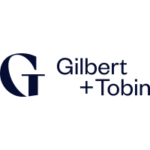-
Please provide a high-level overview of the blockchain market in your jurisdiction. In what business or public sectors are you seeing blockchain or other distributed ledger technologies being adopted?
Distributed ledger technology (“DLT”), of which blockchain is a subset, has been applied in diverse sectors across the UK, from financial technology to security, energy, healthcare, transport and logistics, and real estate. The majority of innovation in recent years has focused on DLT’s application in financial services, initially as part of the cryptoasset boom, and more recently as market participants explore how DLT could improve ‘back office’ efficiencies, the clearing process, and settlement and payment systems. Supply chain management presents another area of uptake, as businesses seek to enhance transparency in response to customer demands for ethical sourcing.
Sentiment towards DLT and, more specifically, cryptoassets, has shifted noticeably in the UK in the past year. Institutional players are increasingly seeking to capitalise on renewed momentum in the sector, as the domestic regulatory framework for cryptoassets crystallises and the government seeks to establish the UK as a leading hub for digital assets. Meanwhile, survey data from the Financial Conduct Authority (“FCA”) suggests that cryptoasset ownership rates among UK adults have more than doubled since 2020, with an estimated 7 million cryptoasset owners across the UK as of August 2024 (12% of the adult population).
Industry buzz has primarily focused on tokenisation projects, where securities or deposits are represented by digital tokens recorded on a smart contract-enabled distributed ledger. Exploration of tokenised commercial bank deposits, in particular, forms part of the Bank of England’s vision for an innovative, vibrant ‘multi-money’ system, characterised by choice across different forms of money and payment. This multi-money system could also incorporate a central bank digital currency (“CBDC”, discussed at Question 4), and stablecoins.
Other notable developments include the government’s progress towards issuing a Digital Gilt Instrument (“DIGIT”), an entirely new, digitally native, UK government debt instrument that will be issued on a platform held within the Digital Securities Sandbox (“DSS”, discussed at Question 3). This year has also seen several London-listed companies announce that they have adopted a Bitcoin treasury strategy.
In terms of volume and amount, decentralised finance (“DeFi”) activities—where smart contract functionality is leveraged to facilitate use cases such as margin trading, lending and borrowing—remain a small portion of the cryptoasset market, although interest in this area has increased in recent years.
-
Please outline the principal legislation and the regulators most relevant to the use of blockchain technologies in your jurisdiction. In particular, is there any blockchain-specific legislation or are there any blockchain-specific regulatory frameworks in your jurisdiction, either now or envisaged in the short or mid-term?
The unique attributes of blockchain are increasingly addressed at law and through regulation, in keeping with a growth in use cases. The Property (Digital Assets etc) Bill currently progressing through UK Parliament—which seeks to establish in statute the common law position that cryptoassets are capable of attracting personal property rights—is a good example of this, aligning the legal position with parties’ expectations.
We explore much of this recognition in further depth in this guide, including in the areas of financial regulation (Question 5), anti-money laundering and sanctions (Question 6) and taxation (Question 7), areas where the legal and regulatory response to blockchain is relatively developed. We also look at case law (Questions 10, 14 and 15), as the UK courts prove themselves robust forums for determining blockchain-related disputes. Of course, as with any area of technology, blockchain use cases will be subject to generally applicable law and regulation.
Turning to the relevant regulators, the financial regulators—the Bank of England, the Prudential Regulation Authority (“PRA”) and the FCA—have taken an active approach to the regulation of cryptoassets, seeking to mitigate potential risks to financial stability and consumers. Other active bodies include the Information Commissioner’s Office (the UK’s data privacy regulator) and HM Revenue & Customs (“HMRC”) (the UK’s tax, payments and customs authority). Where DLT adoption has been slow, regulatory engagement has been more limited.
The attitude of the UK government and regulators to DLT is discussed further at Question 3.
-
What is the current attitude of the government and of regulators to the use of blockchain technology in your jurisdiction?
The UK government’s Wholesale Financial Markets Digital Strategy, published in July 2025, declared the government and regulators open to proposals that innovate on existing forms of payment, such as tokenised deposits and stablecoins; suggested that the tokenisation of assets could deliver a step change in market efficiency; and championed the government’s work towards realising issuance of a DIGIT. Beyond the world of financial services, there has been consistent funding for DLT projects from government-led Innovate UK over the past few years, with goals as diverse as making digital advertising more accountable to preserving and promoting cultural heritage.
The financial regulators have taken a balanced approach to the development of DLT in the financial services sector, seeking to ensure that consumers are protected, that businesses are able to innovate, and that markets function well. For example, they have supported the development of DLT through sandbox initiatives—most recently embracing HM Treasury’s new DSS which will facilitate the issuance, trading and settlement of securities using DLT and be operational until December 2028—and held industry-focused ‘Crypto Sprint’ events to seek views on what an appropriate regulatory regime might look like.
The financial regulators also consistently highlight the risks that the cryptoasset market poses to both consumers and financial stability, and have intervened where their powers permit them to do so (most recently, to crack down on unregistered crypto ATMs). Strikingly, only 14% of cryptoasset businesses have successfully achieved registration with the FCA under the Money Laundering, Terrorist Financing and Transfer of Funds (Information on the Payer) Regulations 2017 (“MLRs”) since January 2020 for cryptoasset activity (see more on MLR registration at Questions 5 and 6), which indicates the FCA’s limited risk appetite in the sector.
The Information Commissioner’s Office has adopted a similarly measured approach to DLT, working with the FCA to assess the regulatory risks and opportunities of Web 3.0 while also communicating potential concerns for data protection associated with the operation of distributed ledgers.
-
Is there a central bank digital currency (‘CBDC’) project in your jurisdiction? If so, what is the status of the project?
Over the past few years, the Bank of England and HM Treasury have been exploring the viability of a UK retail CBDC (or the ‘digital pound’) for use by households and businesses for their everyday payment needs. The Bank of England has cited its primary motivations as supporting the singleness of money, ensuring that the public always has the option to hold central bank money against a backdrop of declining cash use, and promoting innovation, choice and efficiency in payments in an increasingly digital economy.
No decision has been made on whether to implement a digital pound, which is currently in its design phase, or whether (if implemented) the core ledger underpinning the digital pound would make use of DLT. Notably, the government has committed to introducing primary legislation, preceded by further public consultation, before the launch of a digital pound, which means that both Houses of Parliament would have to pass the relevant legislation. This legislation would safeguard users’ privacy, and would seek to guarantee that neither the Bank of England nor government would be able to access users’ personal information or control how households and businesses use their money.
In July 2024 the Bank of England confirmed that it will also explore how central bank money could interact with programmable platforms through the use of wholesale CBDC technologies. In order to do this, the Bank of England has proposed a programme of experiments to test the use cases, functionality and design of a wholesale CBDC. The Bank of England has further suggested that the newly established DSS (see Question 3), which is open to applications, could support new models of sterling central bank money settlement.
-
What is the current approach in your jurisdiction to the treatment of cryptoassets and decentralised finance (‘DeFi’) for the purposes of financial regulation?
Work is underway to introduce a number of new regulated activities tailored to the cryptoasset market into the existing regulatory regime for financial services housed under the Financial Services and Markets Act 2000 (“FSMA”), where these activities seek to mirror, or closely resemble, regulated activities performed in traditional financial services. Supporting these new regulated activities will be further admissions and disclosures, and market abuse frameworks, in addition to ‘activity-specific’ FCA rules and prudential requirements. This approach will broadly phase out the registration regime that currently exists for cryptoasset exchange providers and custodian wallet providers under the MLRs (see more at Question 6), as firms authorised under FSMA will no longer need to register under the MLRs to avoid dual registration. It further evolves the FCA’s 2019 guidance on cryptoassets (PS19/22)—which classifies whether certain cryptoassets are within the regulatory perimeter by reference to pre-existing regulated categories—and builds on the expansion of the financial promotions restriction on 8 October 2023 to capture most cryptoassets. Notably, the government has decided not to amend the Payment Services Regulations 2017 to bring UK-issued stablecoins into the regulatory perimeter for payments at this time. The Bank of England is, however, consulting on its proposed regulatory regime for sterling-denominated systemic stablecoins.
HM Treasury has confirmed that it intends to legislate for a new cryptoasset regulatory regime by the end of 2025 (subject to Parliamentary time). To this end, in April 2025 it published a near-final version of the Financial Services and Markets Act 2000 (Regulated Activities and Miscellaneous Provisions) (Cryptoassets) Order 2025 (“Draft Cryptoasset Order”). This serves to define and classify certain classes of cryptoassets as specified investments under FSMA, and specify certain activities relating to these cryptoassets as regulated activities. These include safeguarding, cryptoasset intermediary activities, arranging cryptoasset staking, operating a cryptoasset trading platform and stablecoin issuance. While the government did not invite significant comment on the Draft Cryptoasset Order upon publication (other than technical checks, such as significant errors or oversights), there has been industry concern regarding certain aspects of the proposals which may mean it is subject to change.
In parallel, the FCA has committed to publishing consultation and discussion papers addressing this absorption of a wider range of cryptoasset activities within the FSMA regulatory framework, with final FCA rules and guidance expected in 2026. Papers have so far been published on:
- DP24/4: the FCA’s approach to cryptoasset admissions and disclosures, and the market abuse regime for cryptoassets;
- DP25/1: the FCA’s approach to regulating cryptoasset trading platforms, intermediaries, cryptoasset lending and borrowing, staking and DeFi, and the use of credit to purchase cryptoassets;
- CP25/14: the FCA’s proposed rules and guidance for the activities of issuing a qualifying stablecoin and safeguarding qualifying cryptoassets;
- CP24/15: the proposed prudential regime for these same activities;
- CP25/25: the application of the FCA Handbook to regulated cryptoasset activities; and
- CP 25/28: progressing fund tokenisation.
In line with HM Treasury’s intention in the Draft Cryptoasset Order, DeFi activities are not covered by the new cryptoasset regime where they are truly decentralised; where there is no person that could be seen to be undertaking a regulated activity by way of business, then requirements to seek authorisation will not be applicable. The FCA will determine in any given case whether there is a sufficiently controlling party or parties that ought to be subject to the requirement to seek authorisation under FSMA. To this end, the FCA has invited feedback on how to assess the degree of centralisation and decentralisation, and how decentralised features interact with the regulatory perimeter
It is worth noting that, at present, certain activities relating to DeFi possibly fall within the scope of existing regulations (such as the financial promotions regime).
-
What is the current approach in your jurisdiction to the treatment of cryptoassets and DeFi for the purposes of anti-money laundering and sanctions?
The MLRs brought cryptoasset exchange providers and custodian wallet providers within the scope of anti-money laundering and counter-terrorist financing regulation. These businesses are required to register with the FCA and implement anti-money laundering and counter-terrorist financing policies, controls and procedures and, since August 2022, it has been necessary to obtain FCA approval before acquiring or increasing control over an FCA-registered crypto firm.
The UK’s financial sanctions regime, implemented and enforced by the Office of Financial Sanctions Implementation, does not differentiate between cryptoassets and other forms of assets. Cryptoasset exchange providers and custodian wallet providers have been within the scope of sanctions reporting obligations since 30 August 2022.
Since 1 September 2023 the so-called ‘Travel Rule’ has required cryptoasset businesses in the UK to collect, verify and share information about cryptoasset transfers. The Economic Crime and Corporate Transparency Act 2023 provided additional powers to law enforcement to facilitate quicker and easier seizure and recovery of cryptoassets which are the proceeds of crime or associated with illicit activity such as money laundering, fraud or ransomware attacks. In November 2024 the FCA published a policy statement confirming that its Financial Crime Guide is applicable to cryptoasset businesses registered with the FCA under the MLRs.
-
What is the current approach in your jurisdiction to the treatment of cryptoassets and DeFi for the purposes of taxation?
The UK does not have a complete set of tax rules for cryptoassets and DeFi transactions. Rather, general principles of UK tax law must be applied, supplemented with the Cryptoassets Manual, published in March 2021 by the UK’s tax authority, HMRC. As with all other HMRC guidance, however, the Cryptoassets Manual does not carry the same binding effect as legislation and, as such, aspects of the tax treatment of cryptoassets and DeFi remain uncertain.
HMRC’s guidance considers that cryptoassets are not money or currency. Therefore, the tax rules that apply to money or currency should not apply to cryptoassets. It also follows that there cannot be a money debt arising from a transaction for the lending of money where cryptoassets are not considered money. This means that the loan relationship rules should not apply to cryptoassets.
For direct taxation, if the cryptoasset activities of an individual or business amount to taxable trading, any trading profits will be taxable as income within the scope of income tax (individuals) or corporation tax (businesses). In April 2022 the investment managers exemption was extended to include cryptoasset transactions, providing certainty of tax treatment to UK investment managers and their non-UK resident investors who seek to include cryptoassets within their portfolios. If cryptoasset activities do not amount to trading, then the individual or business concerned will need to determine whether any profits or losses are capital in nature (and therefore, within the scope of capital gains tax (“CGT”) for individuals or corporation tax for businesses) or income in nature (and therefore taxable as miscellaneous income). In April 2023 the government consulted on proposals to disregard from CGT any disposal of beneficial interest occurring when cryptoassets are staked or lent as part of a DeFi transaction. The outcome is yet to be published.
Furthermore, in cases of businesses undertaking transactions involving cryptoasset exchange tokens, these may attract further taxes such as pay as you earn (“PAYE”) and national insurance contributions (for example, if an employee is paid in exchange tokens, this will normally give rise to the same PAYE/national insurance obligations as a cash payment). HMRC’s guidance considers that cryptocurrencies are property for inheritance tax purposes and therefore potentially subject to inheritance tax.
In the context of stamp taxes, HMRC’s guidance considers that exchange tokens would not be likely to meet the definition of “stock or marketable securities” or “chargeable securities”, but this will be considered on a case-by-case basis. Where cryptoassets are used as consideration for the sale of stock, securities or shares, then any stamp taxes due would be calculated by reference to the sterling value of the cryptoassets on the date when the charge arose. However, HMRC’s guidance considers that exchange tokens would be chargeable consideration for the purposes of SDRT, but not typically for the purposes of stamp duty unless the tokens are treated as debt. As a result, the charge to SDRT would appear to be franked where an instrument of transfer is used and there is no chargeable consideration for stamp duty purposes.
Turning to indirect taxes, and specifically value added tax (“VAT”), an exchange of a cryptocurrency for a fiat currency is an exempt supply for VAT purposes (as are financial services provided by a cryptocurrency exchange in facilitating the exchange of a cryptocurrency for a fiat currency or other exchange tokens). However, where a cryptocurrency is used to pay for goods and services, VAT will still be chargeable on the supply of those goods or services in accordance with the rules on barter transactions (i.e. the value of the supply will be the sterling value of the cryptocurrency at the point the transaction takes place), but will not be due on the supply of the cryptocurrency itself.
In June 2025 the Reporting Cryptoasset Service Providers (Due Diligence and Reporting Requirements) Regulations 2025 (SI 2025/744) were made, coming into force on 1 January 2026. These regulations were introduced to implement the OECD’s Crypto-Asset Reporting Framework rules and will require UK reporting cryptoasset service providers to collect certain information from customers and pass this on to HMRC for exchange with other implementing jurisdictions, with the aim of combating offshore tax avoidance and evasion.
-
Are there any prohibitions on the use or trading of cryptoassets in your jurisdiction? If permitted, is cryptoasset trading common?
There are restrictions related to the use and trading of certain cryptoasset products in the UK. For instance, while the FCA recently lifted its ban on the retail sale, marketing and distribution of cryptoasset exchange traded notes (where admitted to a UK recognised investment exchange), as of 8 October 2025 its ban on retail participation in cryptoasset derivatives remains in force.
Further, as discussed in our answer to Question 5 above, there are prohibitions on cryptoasset firms promoting “qualifying cryptoassets” unless: (i) the promotion is communicated or approved by an FCA-authorised person (subject to the gateway regime for authorised persons approving financial promotions); (ii) the firm is registered with the FCA under the MLRs; or (iii) the promotion otherwise complies with the conditions of an exclusion from the regime. Moreover, as described at Question 5 above, several cryptoasset activities are to be brought within FSMA, including operating a cryptoasset trading platform and cryptoasset intermediary activities. It is also worth noting that several cryptoasset businesses have recently faced regulatory scrutiny and penalties (as described at Question 13 below).
-
To what extent have initial coin offerings (‘ICOs’) taken place in your jurisdiction and what has been the attitude of relevant authorities to ICOs? If permissible, what are the key requirements that an entity would need to comply with when launching an ICO?
There are no overarching laws imposing legal and/or regulatory requirements on the activity of launching an ICO. Whether an ICO will be subject to regulatory requirements is determined on a case-by-case basis, including by reference to whether the coin in question could be categorised as a security or e-money. Most offerings will likely be captured by the financial promotions restriction (see Question 8). In any event, all ICOs will be subject to generally applicable laws such as those concerning taxation, the sale of goods, trading standards, and laws preventing the deception of consumers/investors.
During the ICO peak of 2017-2018 regulators adopted a relatively sceptical approach towards ICOs, urging caution on the part of investors and declaring ICOs as high risk.
This risk appetite is likely to evolve as the UK’s regulatory regime for cryptoassets is finalised and implemented. The Draft Cryptoasset Order published by the UK government in April 2025 (see Question 5) would bring stablecoin issuance alongside a broader range of cryptoasset activity within scope of the FSMA regime, imposing regulatory oversight and requirements on more actors in this sector. The FCA has also published a discussion paper (in December 2024) on its proposed approach to a cryptoasset admissions and disclosures regime. This regime would be triggered by making a public offer of cryptoassets in the UK, and by admission (or requesting admission) of cryptoassets to trading on a regulated cryptoasset trading platform, subject to exemptions. While still subject to consultation, the regime would trigger disclosure and due diligence requirements among others.
-
Are there any legal or regulatory issues concerning the transfer of title to or the granting of security over cryptoassets?
The main challenge from an English law perspective stemmed from the fact that, historically, the courts have generally refused to recognise information and data as property. The traditional definition of property under English law included only real property (land) or personal property (either tangible property or a chose in action, which is an intangible legal right to possess something that can be enforced by an action in court). Consequently, cryptographic tokens and virtual assets, which simply exist as information data on a distributed ledger or blockchain, did not fall within the historic definition of property under English law.
The English courts have, however, started to develop the common law to accommodate virtual assets within the definition of personal property. In September 2024 a ruling by the High Court of England and Wales (“EWHC”) confirmed that a stablecoin could attract property rights. This judgment maintained the position which had been articulated in a line of recent preceding case law. In February 2023 the Court of Appeal confirmed that cryptoassets are capable of being things to which personal property rights can attach, whilst another EWHC judgment in April 2022 affirmed that NFTs were legal property over which a proprietary freezing injunction could be ordered.
The evolving common law accommodation of cryptoassets has been mirrored by statutory developments. In September 2024 the Property (Digital Assets etc) Bill was introduced into Parliament, which seeks to confirm that a thing (such as a cryptographic token) can be legal property even though it is neither tangible property nor a chose in action. The Property (Digital Assets etc) Bill—which began its second reading in the House of Commons in July 2025—implements the recommendations of the Law Commission, who in July 2024 published a report recommending that Parliament enact legislation clarifying the definition of personal property to ensure that things such as digital assets can fall within the definition. (The Law Commission is a statutory independent body (created by the Law Commissions Act 1965) to keep the law of England and Wales under review and to recommend reform where it is needed.) Industry response to the Property (Digital Assets etc) Bill has, however, been mixed, with some arguing that it may have unintended consequences.
Despite the mixed reception of the bill, the recent court developments have done away with much of the uncertainty in English law around the recognition of cryptoassets as property and make it tolerably clear that it is possible to transfer title to or grant security over cryptoassets.
-
How are smart contracts characterised within your legal framework? Are there any enforceability issues specific to the operation of smart contracts which do not arise in the case of traditional legal contracts?
English law is generally recognised as being able to accommodate smart contracts. In November 2021 the Law Commission published a paper containing advice to the UK government confirming that the current legal framework in England and Wales is capable of facilitating and supporting the use of smart contacts, without the need for statutory law reform. This conclusion has not been revisited since.
In its report, the Law Commission highlighted the following issues that may contribute to disputes over smart contracts if not adequately considered in advance by the parties:
- the role of code within the smart contract and, in particular, whether the code is intended both to define contractual obligations and perform them, or just perform them;
- the relationship between any natural language and code (and, in particular, which takes precedence in the event of a conflict); and
- the role of non-executable comments in the code and whether these should be considered to have the effect of contractual terms.
The Law Commission also identified a number of practical issues with resolving disputes in relation to smart contracts. For example, depending on the platform used for the smart contract, it may not be possible to unwind the parties to their pre-contract positions where a contract is voidable. That said, the Law Commission noted that the courts could achieve “practical justice” through other means, such as by ordering the parties to enter into a second transaction on the blockchain, thus reversing the effects of the first transaction, effectively creating the same result.
-
How are Decentralised Autonomous Organisations (‘DAOs’) treated in your jurisdiction?
There is no legislative regime specific to DAOs in the UK. The topic is however clearly of interest to the UK government, which enlisted the Law Commission to undertake a scoping study on DAOs, the results of which were published in July 2024.
One issue at the heart of the Law Commission’s study was whether the law needs to recognise a “DAO-specific legal entity”. The Law Commission concluded that there is no such need for a DAO specific entity. DAOs are, the Law Commission noted, inherently varied in nature with the structure and operation of DAOs differing greatly. Attempting to shoehorn DAOs into a universally applicable legal definition was therefore deemed to be both unnecessary and a potential obstruction to the continued development and growth of DAOs in the UK.
Despite falling short of recommending the introduction of a DAO-specific legal entity, the Law Commission did emphasise the need for the law to evolve to accommodate decentralised structures such as DAOs. The Law Commission indicated that its upcoming review of trust law would consider the necessity of more flexible trust structures under English law capable of accommodating DAOs. It was also suggested that the government consider the introduction of a legal structure similar to an unincorporated non-profit association, which are occasionally used by DAOs in certain states in the USA.
Of course the activities of DAOs may be governed by existing and prospective regulation and legislation. For example, if a DAO’s activities involve managing and/or dealing in investments (including a broad range of cryptoassets, if the Draft Cryptoasset Order is enacted) it could require authorisation from the FCA. See also the summary at Question 5 of the FCA’s approach to DeFi and decentralised structures.
-
Have there been any governmental or regulatory enforcement actions concerning blockchain in your jurisdiction?
The UK authorities have acknowledged the need, and have shown willingness, to take measures to protect consumers from harm arising from the deployment of blockchain technologies. Financial crime remains a core concern, and the UK’s National Crime Agency estimates that between $1.7bn-$5.1bn in illegal UK cryptoasset transactions occur annually.
Of particular note, in July 2024 the FCA took enforcement action against prominent cryptoasset trading platform Coinbase. CB Payments Limited, an authorised e-money institution that is part of the Coinbase group, was fined £3,503,546 for repeatedly breaching a requirement that prevented the firm from offering services to high-risk customers. The FCA has also continued to crack down on illegal crypto ATMs; earlier in 2025 the FCA seized seven unregistered crypto ATMs, which followed on from the charging of an individual in September 2024 for running a network of illegal crypto ATMs.
The FCA has taken a prominent role in regulating the promotion of cryptoasset products. As discussed at Questions 5 and 8, the financial promotions restriction was expanded with effect from 8 October 2023 to capture most cryptoassets. By October 2024, the FCA had issued 1,702 alerts to companies who were engaging in non-compliant cryptoasset promotion. Questions have, however, been raised about the effectiveness of the new regime, with news reports suggesting that only 54% of those alerts resulted in the illegal cryptoasset adverts, apps or websites being taken down.
-
Are there any other generally-applicable laws, case law or regulations that may present issues for the use of blockchain technology (such as privacy and data protection law or insolvency law)?
A key area which presents issues for the use of blockchain technology is its interaction with data protection legislation in the UK.
One issue is the question of whether blockchain technology meets the requirements for personal data storage and erasure. The immutable nature of blockchain data storage conflicts with the principle contained in the UK version of the EU General Data Protection Regulation (the “UK GDPR”) that personal data be retained for no longer than necessary to achieve the purposes of data processing. It also conflicts with the right for individuals to have their personal data erased. Regulators have however begun to issue guidance to help developers and users of blockchain technology in managing these potential conflicts. The Information Commissioner’s Office in the UK is currently consulting on draft guidance on maintaining data protection compliance when using blockchain technology. This consultation, which closes in November 2025, follows the European Data Protection Board’s publication in April 2025 of its long-awaited guidelines on the processing of personal data through blockchain technologies. Further analysis of these guidelines can be found in our article When Decentralisation Meets Regulation: How Blockchain and GDPR Can Coexist (https://www.slaughterandmay.com/insights/new-insights/when-decentralisation-meets-regulation-how-blockchain-and-gdpr-can-coexist/).
Insolvency proceedings are another area where cryptoassets have become increasingly relevant, with a 420% increase over five years in the number of insolvencies where cryptoassets are identified as a category of assets. This has created a number of difficult questions, including how to trace cryptoassets in cases where the debtor does not disclose their existence and how to dispose of them. The Insolvency Service has sought to address some of these difficulties, with a specialist crypto recovery team established in June 2025 to assist in the tracing and recovery of cryptoassets.
A final issue to consider is whether copyright is capable of subsisting in the file format of a cryptoasset such as Bitcoin. In February 2023, in the context of an application for service outside of the jurisdiction, the EWHC answered “no” to this question, asserting that the file format did not meet the ‘fixation’ requirements for copyright protection. The Court of Appeal however disagreed, suggesting that the EWHC had not applied the test for fixation correctly and deemed that there was sufficient merit to the claimant’s case to establish a real prospect of success. The Court of Appeal’s conclusion is not wholly determinative, given that the issue was only considered in the context of an interim application, and so it remains to be seen how the issue will be dealt with at full trial and what this will mean for cryptoassets going forward.
-
Are there any other key issues concerning blockchain technology in your jurisdiction that legal practitioners should be aware of?
There are continued efforts to reform civil procedure in England and Wales to accommodate cases involving cryptoassets. The Law Commission is currently considering necessary reforms to address difficulties which victims of crypto-related fraud face in obtaining early disclosure from third parties. Currently, claimants are required to either bring or be intending to bring a claim in England and Wales in order to issue an information order against a third party. This poses a difficulty in cryptoasset cases, where the identity and location of the defendant is often unknown.
As such, the Law Commission in its June 2025 consultation paper has proposed a free-standing information order, available at the pre-action stage without a requirement for underlying proceedings in England. This paper also identifies further challenges to the application of private international law rules in a DLT context—particularly in relation to wholly decentralised use cases—which may give rise to future clarifications in this area.
International (including UK) antitrust authorities are increasingly showing an interest in the potential risks of anticompetitive conduct associated with the use of blockchain technology, including the potential for information sharing and co-ordination, among other things. Under the Digital Markets, Competition and Consumers Act (“DMCC”), which received Royal Assent in May 2024, the Competition and Markets Authority now has the power to take a greater range of pro-active measures against cryptoasset providers acting in breach of competition or consumer protection laws. This follows from the landmark private claim brought by an estimated 240,000 UK investors against Bitcoin Satoshi Vision (“BSV”), which was certified for collective proceedings by the Competition Appeals Tribunal in July 2024. The claim alleges that, beginning in April 2019, UK BSV holders suffered estimated losses of up to £9.9 billion as a result of the delisting of BSV by exchanges Binance, Bittylicious, Kraken and Shapeshift. This claim marks the first time that competition law has been applied to digital assets in the UK.
United Kingdom: Blockchain & Crypto Assets
This country-specific Q&A provides an overview of Blockchain & Crypto Assets laws and regulations applicable in United Kingdom.
-
Please provide a high-level overview of the blockchain market in your jurisdiction. In what business or public sectors are you seeing blockchain or other distributed ledger technologies being adopted?
-
Please outline the principal legislation and the regulators most relevant to the use of blockchain technologies in your jurisdiction. In particular, is there any blockchain-specific legislation or are there any blockchain-specific regulatory frameworks in your jurisdiction, either now or envisaged in the short or mid-term?
-
What is the current attitude of the government and of regulators to the use of blockchain technology in your jurisdiction?
-
Is there a central bank digital currency (‘CBDC’) project in your jurisdiction? If so, what is the status of the project?
-
What is the current approach in your jurisdiction to the treatment of cryptoassets and decentralised finance (‘DeFi’) for the purposes of financial regulation?
-
What is the current approach in your jurisdiction to the treatment of cryptoassets and DeFi for the purposes of anti-money laundering and sanctions?
-
What is the current approach in your jurisdiction to the treatment of cryptoassets and DeFi for the purposes of taxation?
-
Are there any prohibitions on the use or trading of cryptoassets in your jurisdiction? If permitted, is cryptoasset trading common?
-
To what extent have initial coin offerings (‘ICOs’) taken place in your jurisdiction and what has been the attitude of relevant authorities to ICOs? If permissible, what are the key requirements that an entity would need to comply with when launching an ICO?
-
Are there any legal or regulatory issues concerning the transfer of title to or the granting of security over cryptoassets?
-
How are smart contracts characterised within your legal framework? Are there any enforceability issues specific to the operation of smart contracts which do not arise in the case of traditional legal contracts?
-
How are Decentralised Autonomous Organisations (‘DAOs’) treated in your jurisdiction?
-
Have there been any governmental or regulatory enforcement actions concerning blockchain in your jurisdiction?
-
Are there any other generally-applicable laws, case law or regulations that may present issues for the use of blockchain technology (such as privacy and data protection law or insolvency law)?
-
Are there any other key issues concerning blockchain technology in your jurisdiction that legal practitioners should be aware of?




















